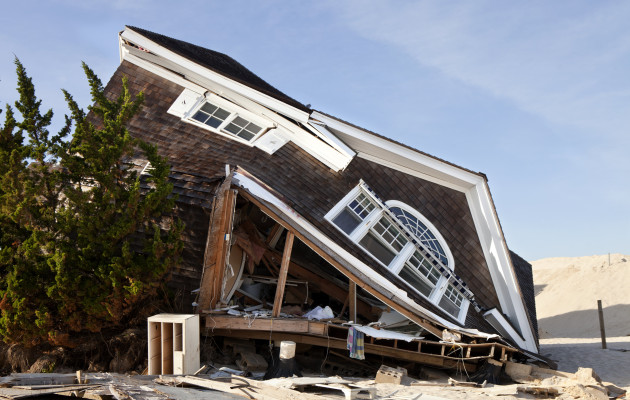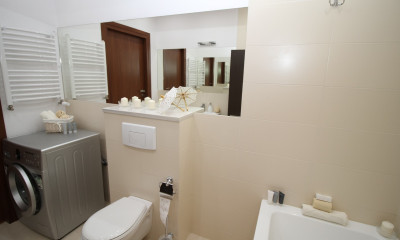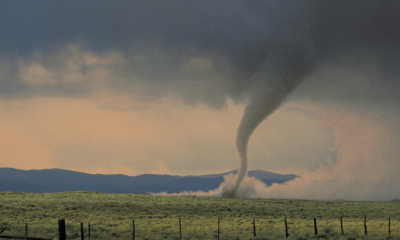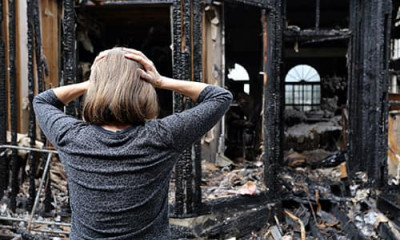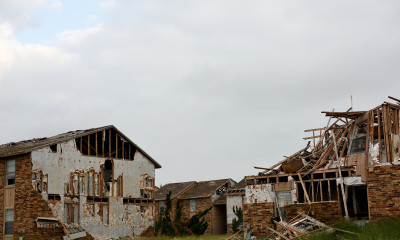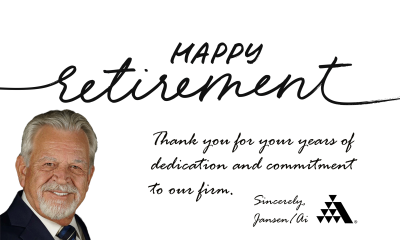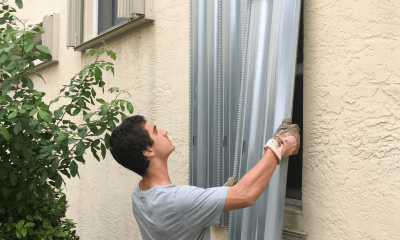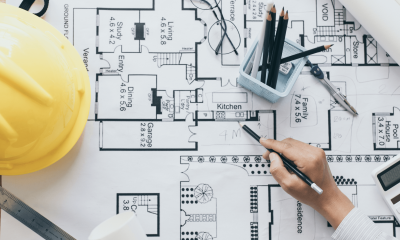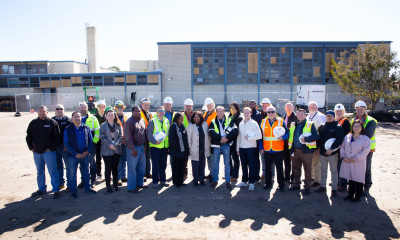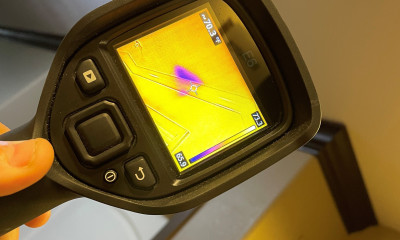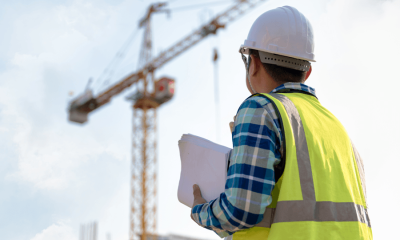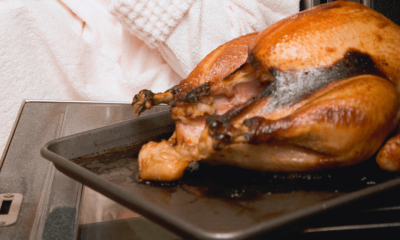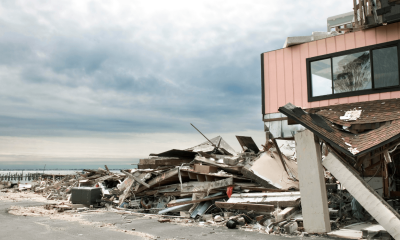The Four Most Common Types of Property Damage After a Hurricane
It can be difficult to fully picture what type of damage a Category 4 hurricane can cause. According to the National Hurricane Center, with a Category 4 storm, “catastrophic damage will occur: well-built framed homes can sustain severe damage with loss of most of the roof structures and/or some exterior walls.” They also note trees will be snapped or uprooted, and power lines will be down, causing the isolation of residential areas. Jansen/Adjusters International’s Principal & Executive General Adjuster, Luis Esteves, has dealt with numerous hurricane damage claims for over 20 years and provides insight on what property damage is most likely to occur during a hurricane.
What Type of Damage Does a Hurricane Cause?
1. Roofs
The 130-156 mph winds produced by Category 4 hurricanes can tear or lift even the strongest roofs off homes and buildings. Esteves notes that whether or not the insurance company will fully cover the damage depends on several factors, including the age of the roof, previous damage, and, most importantly, what type of insurance coverage was purchased by the policyholder. If the roof is relatively new and in good shape, most standard policies will pay to repair it back to the condition it was before the hurricane, and some policies will even pay for a completely new roof.
Policies providing a greater amount of coverage are known as replacement cost value, or RCV policies, which should cover a completely new roof. However, enough of the roof has to be damaged to warrant a full replacement. For example, some insurers require more than seven shingles to have been damaged in one hundred-square-foot area (in roofing terminology- one square) to qualify for a new roof. When the insurance adjuster comes to inspect your roof, be present and ensure that they are looking at several test squares to document all areas that sustained damage. This will give you the best chance of getting a full roof replacement.
2. Interiors
When roofs, windows, and doors are damaged, heavy rains and flying debris can enter buildings, damaging walls, flooring, and furnishings. Another interior concern is the potential for mold growth. Esteves notes that there can be a high likelihood of mold damage after hurricanes, which can be a big problem, especially since most policies limit coverage for mold.
One of the biggest factors for limiting mold damage is the immediate remediation to remove water from the house and prevent mold from developing and spreading. However, getting a remediation specialist to your home after a hurricane might be difficult when so many people are looking for this service.
Insurance carriers can use a delay in getting remediation as a reason to deny a claim, so the best thing to do is try to get a remediation expert as soon as possible and document your efforts. Be sure to attempt to schedule appointments with remediation companies and have proof of these conversations. If you need to remove damaged parts of your home, document what you remove. At the very least, document the spread of mold in your house as you wait for remediation. contractor. Proof of attempts at immediate remediation can go a long way in getting your claim approved.
As for policy limitations for mold, these can be quite complicated and differ greatly depending on wording and types of coverage. Enlisting a public adjuster who can interpret the policy and determine the best course of action for remediation and preparing your claim can be beneficial.
3. Equipment
Many types of equipment can be impacted by flooding, including power surges that hurricanes often bring. Hot-water boilers, transformers, air-conditioning systems, computer equipment, telephone systems, and other equipment can be damaged in homes. Businesses can face damage to equipment, including fire-pressured vessels, sterilizers, vulcanizers, electrical equipment, and electronic data processing equipment.
Most people assume equipment damaged in a hurricane will automatically be covered, but this is not the case. For equipment to be covered, policyholders need to prove the extent of their loss. This includes visual evidence/photographs to show the extent of the damage and analysis from third-party experts, such as an HVAC technician or other specialist, to confirm the damage.
Another issue to consider is how equipment might fare down the road. Even if your air conditioning unit isn’t notably damaged right after a hurricane, note the potential for damage in your claim and wait for it to go through a freeze-thaw cycle. It might work fine in the months after a hurricane, but if, come summertime, your AC unit suddenly can’t handle working in the heat.
4. Public Utilities and Ordinances
Local mandates for evacuation orders can affect claims by delaying your ability to assess the damages and complete remediation. Document any evacuation orders and when you were allowed back to assess and document hurricane damage. Insurance adjusters won’t always know the exact times evacuations happened, but that information can greatly affect your claim, so document it well.
Another local ordinance that can affect a claim is the percentage of destruction. Some towns have laws that state you cannot build on top of an over 50% damaged structure. If your home falls into that category, ensure your insurance adjuster knows about the particular laws in your area so they can consider that when assessing your claim.
Esteves notes that hurricane damage can lead to complicated insurance claims, but policyholders can improve their chances of recovering their property losses by taking a few important steps.
What issues likely prevent policyholders from getting everything they are entitled to under their purchased policies?
Returning to their properties, finding damage and not remedying it (or taking steps to prevent further damage), such as tarping torn roofs and windows or turning off water supply valves.
- Not having a handle on the full scope of the damage when the insurance company’s adjuster(s) arrives to inspect the damaged property.
- Not being able to provide accurate property values and repair costs.
- Not having a detailed personal property or contents inventory prepared or throwing away damaged items before any documentation has been done.
- Not understanding what rights and obligations are included in their policy.
Esteves also states many of these issues can be avoided by hiring a qualified licensed public adjuster. A public adjuster can help property owners fully recover from a loss and negotiate with the insurance company on their behalf. Public adjusters bring expertise and knowledge to what can otherwise be a lengthy and confusing process for those outside the insurance industry.
“Our experts measure and document property damages for policyholders to assist them in recovering funds for the damages they have sustained," says Esteves. "Our licensed public adjusters help you determine how much you are entitled to under your property insurance policy.”
Related Case Study: Multi-family Client Settles Hurricane Laura and Delta Claim

